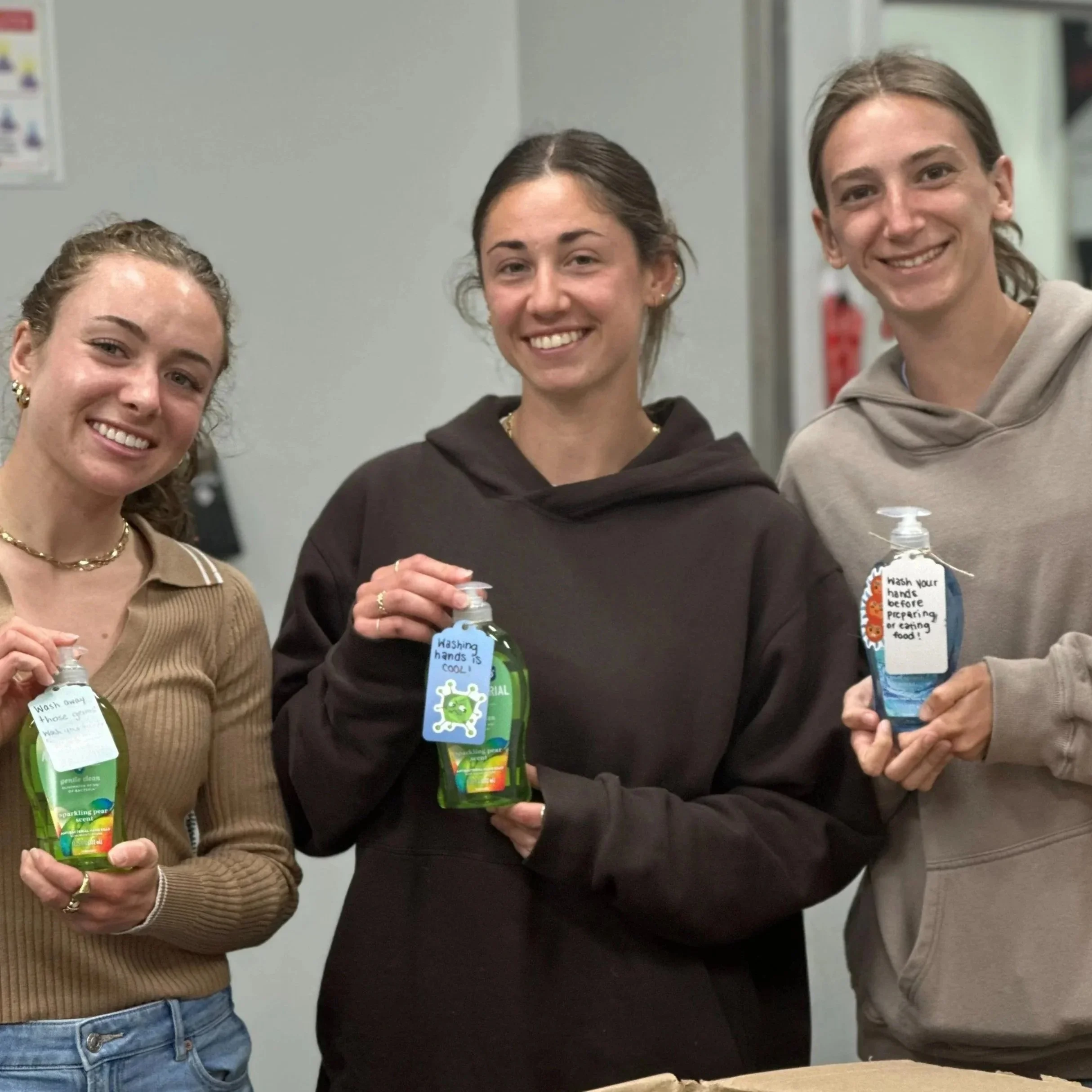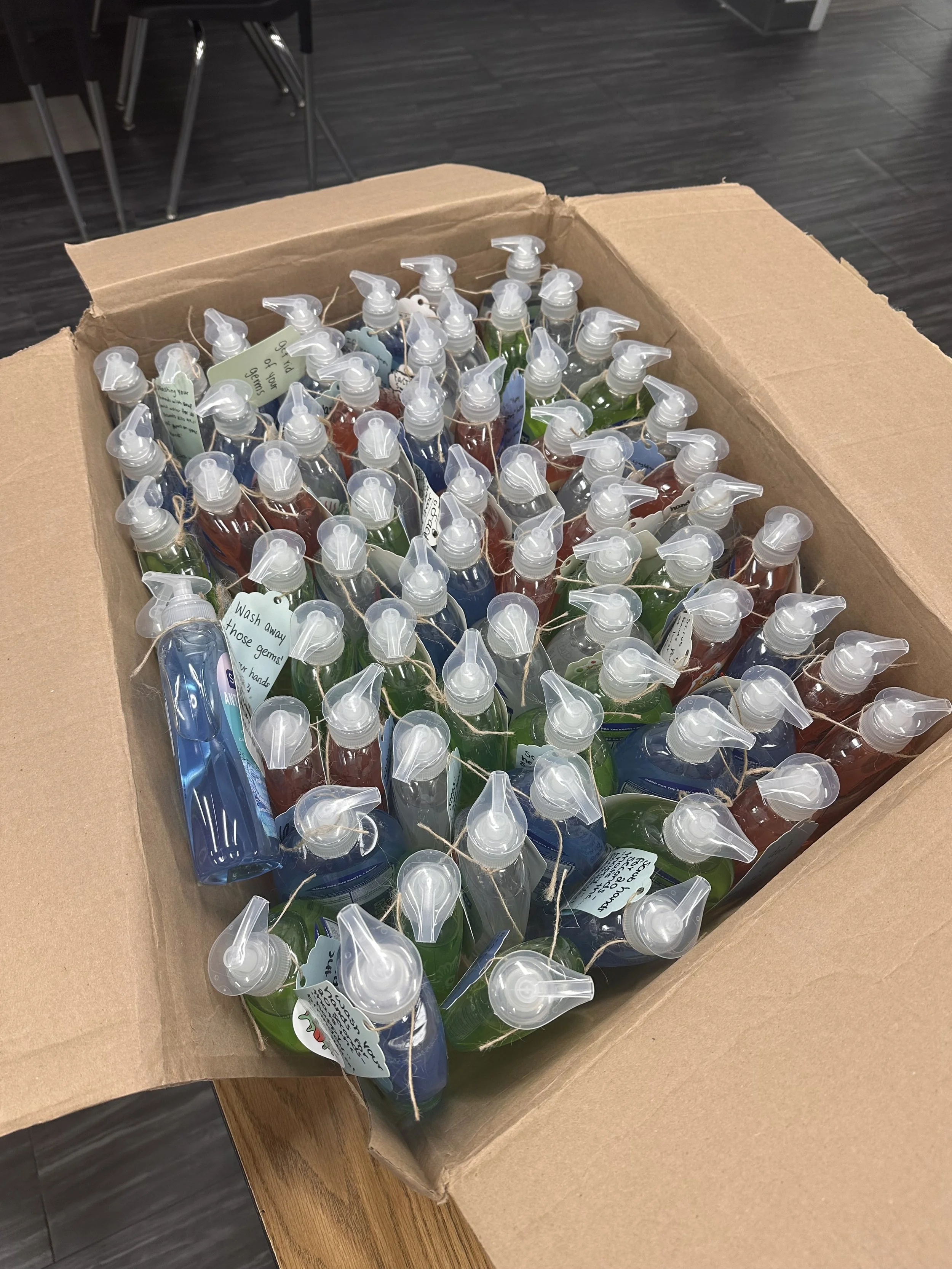Good health - it’s contagious!
In our model, we equip young people with the tools necessary to research community health and determine solutions to health challenges. Participants use their skillset to improve community health through campaign materials, ultimately leading to improved community wellness and participant health advocacy confidence.
There are five components to our model: partnership, mentorship, health advocacy, community impact, and impact measurement.
Partnership
Pre-health collegiate student-athletes team up with a local public middle or high school.
During spring 2025, University of Maryland student-athletes collaborated with College Park Academy, a local public charter school. Mentors worked with middle school students (grades 6-8) during their CPA+ after school program “Wellness Club”.
Mentorship
Collegiate mentors guide participants through health advocacy curricula and assist participants in their health campaign creation.
The goal is that in having rising healthcare professionals mentoring program participants, not only will participant health advocacy skills/confidence improve, but mentors will improve in their health communication abilities.
Health advocacy
We aim to increase student health advocacy skills and confidence over the course of the program. We utilize established health advocacy curricula, and then put lessons into practice with campaign creation. Our theory is that in advocating for community health, students improve health literacy skills and gain self-efficacy over their own health.
Our engaging lessons regard root causes of health, community health, and public health advocacy (including campaign creation and messaging strategies). Students complete group activities meant to test new skills, such as Kahoot! games.
Community impact
Campaigns address real health issues identified by students as prevalent community problems. Using community feedback/survey data, students determine which messaging strategies will be most influential.
Mentors provide the support and resources necessary to help make participants’ most creative ideas a reality.
Impact measurement
All of our goals are measured via surveys and other engagement analytics throughout the program. We emphasize to students the importance of surveys in measuring program/content effectiveness.
Students are assessed on health advocacy skills/confidence, health literacy, health self-efficacy, and health behaviors during the first sessions. Participants are reassessed during the last session.
Community impact is tracked using surveys and engagement analytics, looking to see that campaign material is positively received and is improving health attitudes and behaviors.
Mentor health communication skills are assessed via survey during the first session and reassessed during the last session.


